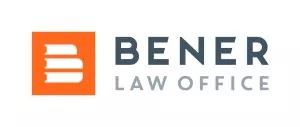- within Consumer Protection and Immigration topic(s)
- in Asia
- with readers working within the Insurance industries
Thriving Corruption under Crisis: Where and How We are facing a remarkable event not witnessed since the last century according to many experts including famous historian Yuval Harari. While we find ourselves in this major crisis with the Covid-19 threatening to devastate most of the economies and health systems around the world, it is time to think about risky areas for our institutions and companies and how to prevent from corruption.
It is a known fact that corruption grows during times of crisis, especially when people are in panic mood, institutions are preoccupied and monitoring is weak. As experienced during Ebola virus and swine flu, corrupt often profits from these challenging times and takes advantages of others' hardship. According to Red Cross reporting 1, only in Ebola between 2014-2016, $6 million has been lost to corruption and fraud mostly due to diversion and mismanagement of funds.
While many people are distracted due to chaotic situation, how corruption works as an incubator should be examined closely. We need to find out if the deeply rooted corruption will change its course as a reaction to this difficult era and identify the corruption prone spots specific to crisis. Areas come to mind indicate some of the usual suspects, but they could come in disguise in these days of misfortune:
Procurement
Considering that 10-25% of global money in procurement is estimated to lost to corruption2 , procurement is already on top of the risky areas for the corruption in pandemic days. We have to keep in mind that even in the EU, 28% of health corruption cases have been found to be related to medical procurement 3. We may see more and more "emergency procurements" ignoring open and transparent contracting principles. This could be indeed the golden excuse for the corrupt to evade from the accountable processes subject to monitoring in usual times.
A recent incident in Brazil is indeed a perfect example how governments can apply prefential treatment while buying supplies. When choosing companies to purchase surgical masks, the Brazilian government selected a company close to the President even though contracted price was 12 times more than market price4 .
So, regardles of government or private sector beware of procurements now and even more than ever.
Bribery risks
Health industry and logistics are already indicated as some of the high corruption risk secgors. It is clear that the risk associated on these industries will increase during the health related crisis, hence, they should be monitored very carefully.
Considering the bribery rates are already high in major parts of the world on such industries, 14% in Africa and the Middle East 5 and 10% in Latin America and the Caribbean 6, increased risk of bribes are actual and genuine concern at the moment. In the rush of reaching goods and services, supply chains stand out as the area needs more attention and third party risks should be under strict scrunity in these days. We may actually see an increase in petty bribes all over the world and it should ring the alarm bells for all.
Favoritism
During global Covid-19 crisis, we have also witnessed a great deal of difficulties in accessing to good medical services in many parts of the world. Hospitals already have been facing difficulty to deal with finding sufficient beds, medical supplies and health workforce. While medical professionals cope with very hard decisions about which patients to treat, who should get intensive care units and devices like ventilators, these could easily bring concerns over favoritism, especially in favor of the rich and powerfull over the poor and disadvantaged groups. When it comes to people's health and fundamental necessities, this should never be looked it over and instead work ethics should thrive everywhere.
Black Markets and Profiteers
Covid-19-related events also disclosed a worldwide hysteria among some people to stockpile items as well as the inflated prices in basic food and medical supplies. While the price of urgent items such as masks, gloves and disinfectants have been skyrocketed across the countries, many in needs had to pay excessive amounts to just to reach basic necessities.
Most of the governments around the world imposed sanctions on price gouging that affect the supply of goods and services. But the danger is not only limited to the penalities. Knowing that shortage of goods may lead to black market and this may mean the involvement with actors in organised crime and counterfeit and illegal goods, such practices not only have financial consequences but also brings great risks and damages to the companies. The ones making risk analysis and always prioritizing business integrity in the face of this global health emergency will be the winners once after the storm is over.
Aids, Funds and Charity payments
Having watched humanitarian aids flowing to natural disasters in the world, we know that corruption may as well arise under these very difficult circumstances. Even though we can all agree that corruption in humanitarian aid is probably the lowest kind, it happens more often than we can think of. Combination of urgency to provide help, weak governance and sensitive situations causes circumstances in which corruption can flourish and money sent to people in need evaporates. Distribution of money should be carefully examined for charity payments that are made with good intentions.
Also another risky area arises when emergency financial assistance provided to the countries in need. After IMF's announcement of surrendering $1 trillion to assist governments during the coronavirus emergency, it is said that more than 90 countries have applied for emergency assistance. Considering a number of news regarding corruption and other fradulent events in similar situations, this issue points out an important risk on spending. Last week, three international NGOs7 have sent a joint letter to the IMF Executive Board for implementation of proper oversight on use of the money. Therefore, public contracts and biddings should be watched out, winning parties and their beneficial owners should be examined and market conditions should be monitored for competitiveness and collusion.
Examining some corruption scenarios under crisis only proves that we should be strategic in our approach, adapt our efforts in the face of this new reality and be mindfull of the risks more than ever.
Footnotes
1 https://media.ifrc.org/ifrc/ifrc-statement-fraud-ebola-operations/
2 5 UNODC, 2013. Guidebook on Anti-Corruption in Public Procurement and the Management of Public Finances, p.1
3 http://ti-health.org/wp-content/uploads/2017/01/Making_The_Case_for_Open_Contracting_TI_PHP_Web.pdf
4 https://theintercept.com/2020/03/22/mandetta-mascaras-bolsonarista-coronavirus/
5 https://www.transparency.org/GCB10/Africa
6 https://www.transparency.org/gcb10/latin-america-and-the-caribbean
7 https://www.transparency.org/news/pressrelease/imf_make_covid_19_funds_transparent_accountable
The content of this article is intended to provide a general guide to the subject matter. Specialist advice should be sought about your specific circumstances.


